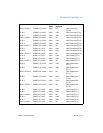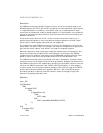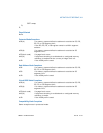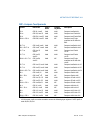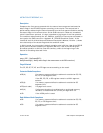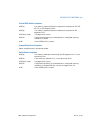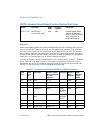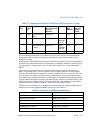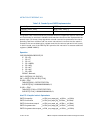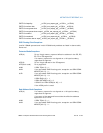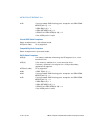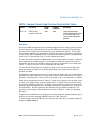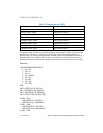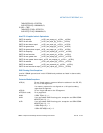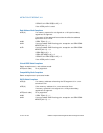
Vol. 2A 3-127
INSTRUCTION SET REFERENCE, A-M
CMPPD—Compare Packed Double-Precision Floating-Point Values
The unordered relationship is true when at least one of the two source operands
being compared is a NaN; the ordered relationship is true when neither source
operand is a NaN.
A subsequent computational instruction that uses the mask result in the destination
operand as an input operand will not generate an exception, because a mask of all 0s
corresponds to a floating-point value of +0.0 and a mask of all 1s corresponds to a
QNaN.
Note that the processor does not implement the greater-than, greater-than-or-
equal, not-greater-than, and not-greater-than-or-equal relations. These compari-
sons can be made either by using the inverse relationship (that is, use the “not-less-
than-or-equal” to make a “greater-than” comparison) or by using software emula-
tion. When using software emulation, the program must swap the operands (copying
registers when necessary to protect the data that will now be in the destination), and
then perform the compare using a different predicate. The predicate to be used for
these emulations is listed in Table 3-7 under the heading Emulation.
Compilers and assemblers may implement the following two-operand pseudo-ops in
addition to the three-operand CMPPD instruction. See Table 3-7.
:
NLE 110B Not-less-than-or-
equal
NOT(A ≤ B) True Yes
Not-greater-than NOT(A > B) Swap
Operands,
Use NLT
True Yes
Not-greater-than-
or-equal
NOT(A
≥ B) Swap
Operands,
Use NLE
True Yes
ORD 111B Ordered A , B = Ordered False No
Table 3-8. Pseudo-Op and CMPPD Implementation
Pseudo-Op CMPPD Implementation
CMPEQPD xmm1, xmm2 CMPPD xmm1, xmm2, 0
CMPLTPD xmm1, xmm2 CMPPD xmm1, xmm2, 1
CMPLEPD xmm1, xmm2 CMPPD xmm1, xmm2, 2
CMPUNORDPD xmm1, xmm2 CMPPD xmm1, xmm2, 3
CMPNEQPD xmm1, xmm2 CMPPD xmm1, xmm2, 4
CMPNLTPD xmm1, xmm2 CMPPD xmm1, xmm2, 5
Table 3-7. Comparison Predicate for CMPPD and CMPPS Instructions (Contd.)
Predi-
cate
imm8
Encod-
ing
Description Relation where:
A Is 1st Operand
B Is 2nd
Operand
Emulation Result if
NaN
Operand
QNaN
Oper-and
Signals
Invalid



